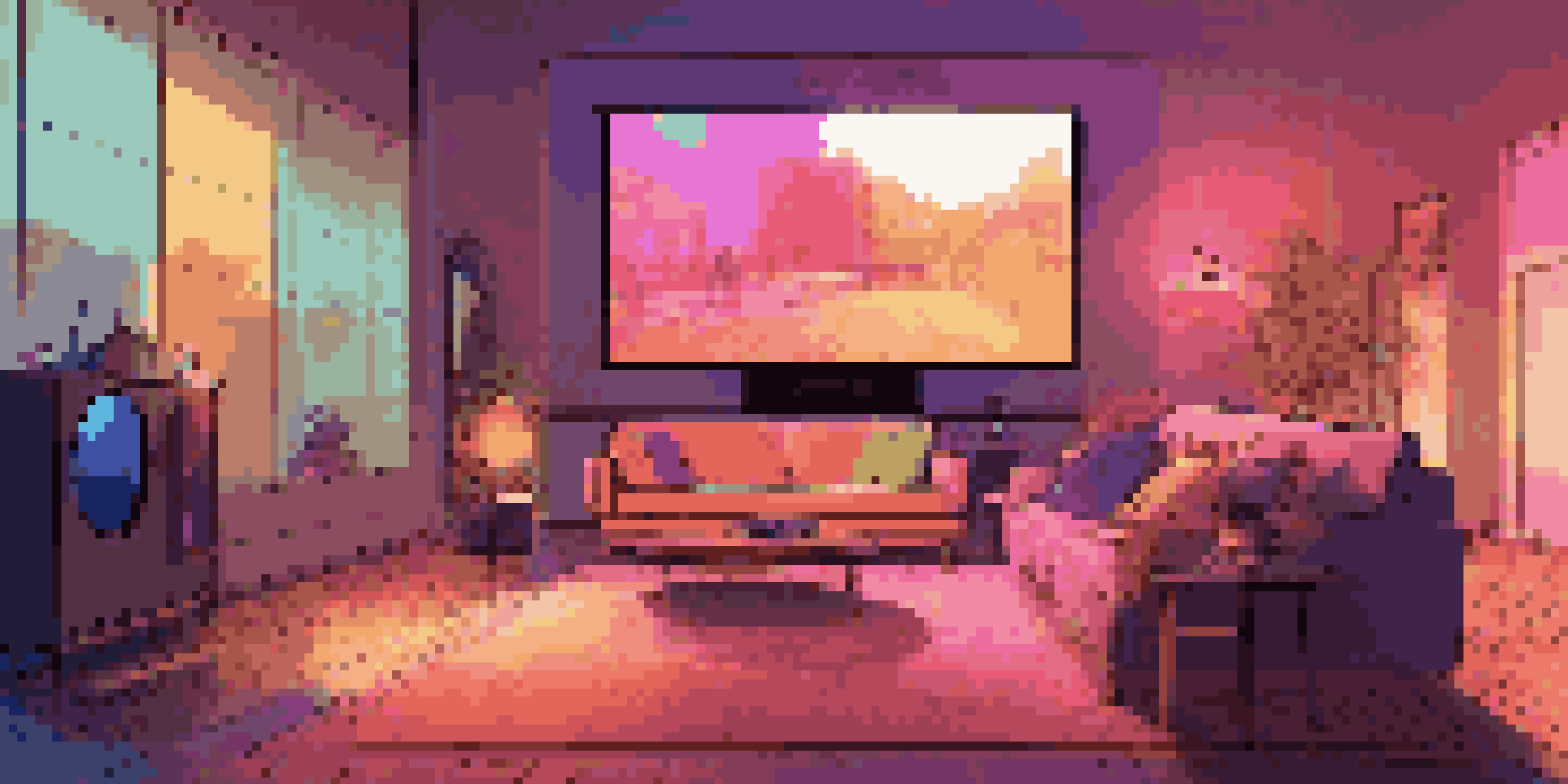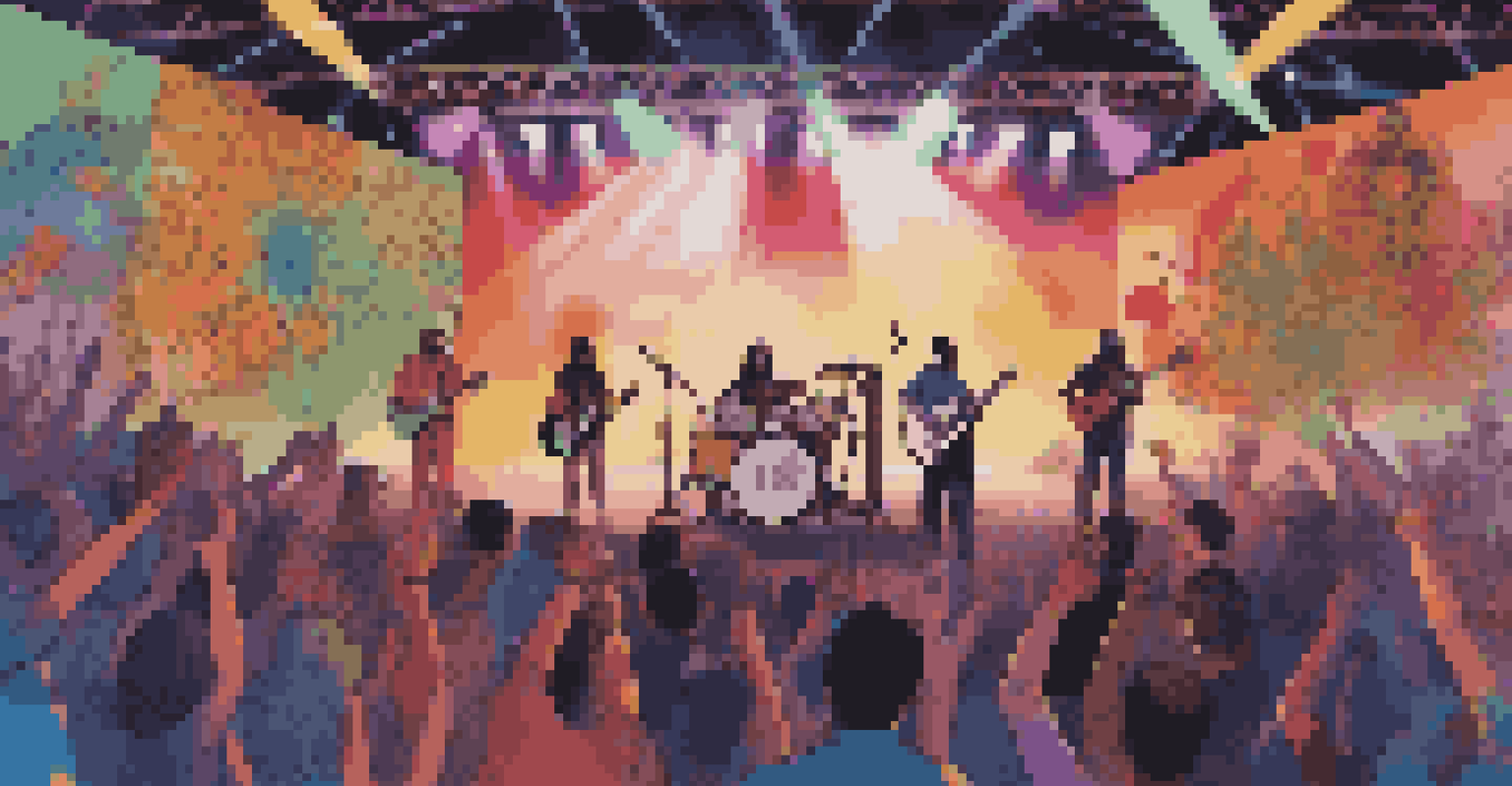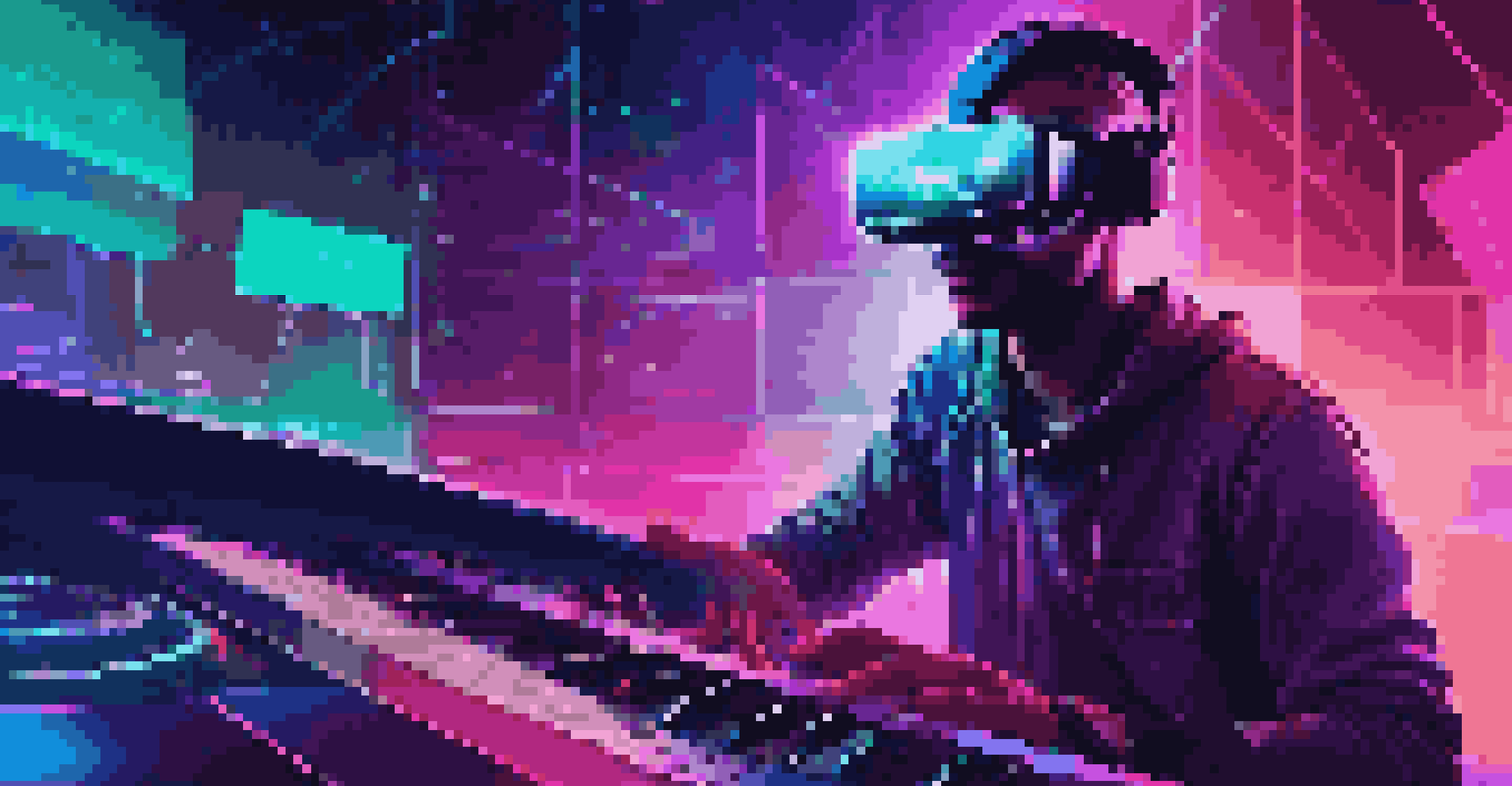How VR is Shaping the Future of Music Distribution

The Rise of Virtual Reality in Music
Virtual reality (VR) is no longer just a futuristic concept; it's becoming a reality in the music industry. Artists and labels are exploring VR as a platform to connect with fans in innovative ways. Imagine attending a concert without leaving your living room, experiencing the show from the comfort of your couch. This immersive experience is reshaping how music is consumed and appreciated.
Virtual reality is not just a new technology; it's a new way to experience art and music, breaking down barriers and connecting us in ways we never imagined.
With VR technology advancing rapidly, musicians are finding new avenues for creativity and engagement. They can create virtual concerts that allow fans to feel like they are part of the performance. This shift not only enhances the listener's experience but also opens up new revenue streams for artists who can reach global audiences.
As more people embrace VR, the potential for its application in music distribution grows. The industry is witnessing a transformation where traditional barriers to access and engagement are being dismantled, making music more accessible to everyone.
Enhancing Fan Engagement Through Immersion
One of the most exciting aspects of VR in music distribution is its ability to enhance fan engagement. Unlike traditional music formats, VR offers an immersive experience that allows fans to feel connected to their favorite artists. This connection can foster a deeper sense of loyalty and community among listeners.

For instance, VR platforms can host virtual meet-and-greet sessions, allowing fans to interact with artists in real-time. This personal touch transforms the relationship between musicians and their audience, making it more intimate and interactive. Fans can ask questions, share experiences, and even participate in live performances.
VR Enhances Fan Engagement
Virtual reality offers immersive experiences that deepen the connection between artists and fans.
This level of engagement not only benefits fans but also provides artists with valuable feedback and insights. By understanding their audience better through these interactions, musicians can tailor their music and marketing strategies, ensuring they resonate with their listeners.
New Revenue Streams for Artists and Labels
As VR becomes a significant player in music distribution, it also presents new revenue opportunities for artists and labels. Virtual concerts can be monetized in various ways, from ticket sales to exclusive merchandise. This creates a sustainable business model that can thrive alongside traditional music sales.
The future of music is not just in the sound, but in the experience; VR allows us to create immersive environments that bring the music to life.
Moreover, VR experiences can be offered as subscription services, where fans pay for access to exclusive content. This model mirrors popular streaming platforms but adds a unique twist that enhances the value of the experience. Artists can leverage this to build a loyal subscriber base eager for exclusive content.
By diversifying revenue streams, musicians can reduce their reliance on traditional sales and adapt to the evolving landscape of the music industry. As audiences become more accustomed to VR, the financial potential of this technology will continue to grow.
Breaking Down Geographical Barriers
One of the most remarkable benefits of VR in music distribution is its ability to break down geographical barriers. Fans from all over the world can attend virtual concerts, regardless of where they live. This democratization of access allows artists to reach audiences they might never have connected with through traditional means.
Imagine a small indie band from a remote location hosting a virtual concert that attracts fans from major cities across the globe. This not only boosts their visibility but also enhances their chances of building a dedicated following. Fans can experience live performances without the constraints of travel or ticket availability.
New Revenue Streams for Artists
VR opens up innovative monetization opportunities, including virtual concerts and subscription services.
In this way, VR is reshaping the music landscape by creating a truly global community. The shared experience of attending a virtual concert can foster connections among fans worldwide, promoting collaboration and cultural exchange.
The Role of VR in Music Marketing Strategies
In an increasingly competitive music market, VR is becoming an essential tool in marketing strategies. Artists can create immersive promotional content that captures the attention of potential listeners. For example, a new album release could be accompanied by a VR experience that immerses fans in the album's themes and concepts.
This innovative approach not only stands out in a crowded market but also offers a memorable experience that fans are likely to share. The viral potential of engaging VR content can significantly increase an artist's reach and visibility. It's a fresh way to generate buzz and excitement around new music.
By incorporating VR into their marketing, artists can differentiate themselves and create a lasting impact on their audience. As fans seek unique experiences, VR provides the perfect platform for artists to showcase their creativity and innovation.
Challenges of Integrating VR in Music Distribution
Despite its many benefits, integrating VR into music distribution comes with its challenges. One significant hurdle is the cost of VR technology, which can be prohibitive for some artists and labels. Investing in high-quality VR production and distribution requires resources that not all musicians can afford.
Additionally, there's the challenge of ensuring that the technology is user-friendly. If fans find it difficult to navigate VR platforms, they may be less likely to engage with the content. Ensuring a seamless and enjoyable experience is crucial for artists looking to build a loyal fan base.
Breaking Geographical Barriers
VR allows fans worldwide to attend concerts, democratizing access to music and creating a global community.
As the industry continues to evolve, finding solutions to these challenges will be essential. Collaborative efforts between tech companies and the music industry can help democratize access to VR, making it more accessible for both artists and fans.
The Future of Music Distribution with VR
Looking ahead, the future of music distribution is undoubtedly intertwined with VR technology. As advancements continue to emerge, we can expect even more innovative ways for artists to connect with their fans. The possibilities are endless, from virtual reality music festivals to interactive album experiences.
Moreover, as VR becomes more mainstream, it may redefine how we consume music altogether. Imagine having personalized VR experiences tailored to individual preferences, making each listener's journey unique. This level of customization could transform the music landscape, making it more engaging and immersive.

Ultimately, VR is not just a trend; it's a glimpse into the future of music distribution. As artists, labels, and fans embrace this technology, we can expect a vibrant, dynamic music ecosystem that prioritizes connection and creativity.